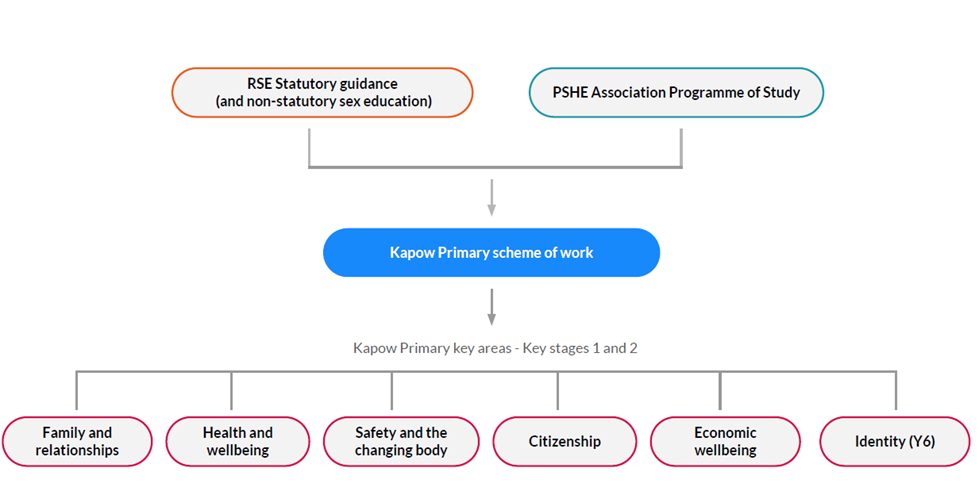RSHE and PSHE
Please read on to find out about our parental consultation which took place in March 2021. We hope you find this page useful in providing you with information about our PSHE and RSHE curriculum.
At Metheringham Primary School, we place a high value on the development of the ‘whole child’. The teaching of Personal, Social, Health & Economic (PSHE) education underpins children’s development as people and supports their learning capacity. PSHE also forms part of our wider, holistic approach to addressing sensitive subjects and protection our pupils. Through our PSHE curriculum, we aim to provide children with the knowledge, skills and understanding they need to lead confident, healthy, independent lives and to become informed, active and responsible citizens who make a positive contribution to society. We value PSHE as one way to support children’s development as individuals, to enable them to understand and respect who they are, to empower them with a voice and to equip them for life and learning.
From September 2020, PSHE incorporates statutory Relationships and Health Education for all primary school pupils. At Metheringham, we include statutory RHSE within our whole school PSHE Programme; some elements will also be reinforced through links with other subjects such as Science, Religious Education, Computing and PE.
The PSHE Association (2019) specifies that PSHE is taught to enable pupils to achieve their potential by eliminating any potential barriers that could affect their ability to learn such as; unhealthy relationships and anxiety. The National Curriculum (2014) affirms this by stating that PSHE should equip children with an understanding of risk and the knowledge and skills needed to make safe, informed decisions.
The Programme of Study is divided into five core themes: Family and Relationships, Health and well-being, Economic well-being, Citizenship, Safety and the changing body and Identity (Year 6 only).
Programme of Study
At Metheringham, PSHE is taught in dedicated lessons, but is also embedded within our programme of assemblies and with links across the curriculum. We use the Kapow Primary scheme of work in conjunction with the PSHE Association to support our PSHE and RSHE curriculum. This ensures we can offer a comprehensive scheme of learning that provides consistency and progression, but with flexibility to allow us to meet the needs of our children within a spiral curriculum, which enables learning that is deepened and broadened year on year. Lessons are categorised into the five key areas below, which are returned to in each year group, making pupils’ prior and future learning clear and shows how what is taught fits into their wider learning journey. Year 6 also has a further key area: Identity

Teaching and Learning
Kapow Primary’s RSHE and PSHE scheme of work has been designed as a spiral curriculum with the following key principles in mind:
✓ Cyclical: Pupils revisit the five key areas throughout KS1 and KS2.
✓ Increasing depth: Each time a key area is revisited, it is covered with greater depth and increasing maturity.
✓ Prior knowledge: Upon returning to each key area, prior knowledge is utilised so pupils can build on previous foundations, rather than starting again.
What is Relationships and Sex Education (RSHE)?
RSHE (formerly SRE) is about the emotional, social and cultural development of pupils, and involves learning about relationships, reproduction, healthy lifestyles, diversity and personal identity.
RSHE involves a combination of sharing information and exploring issues and values.
RSHE is not about the promotion of sexual activity or a particular sexual orientation.
Personal and social skills
Using techniques such as role play, reflection and group discussion, children are taught to develop self-awareness, empathy, resilience, self-management and social skills. Lessons and resources are designed to help children address topics at an age appropriate level. Children are supported in setting aspirational goals, coping with difficult situations and dealing with interpersonal issues such as falling out with friends.
Relationships education
Children are taught to recognise the characteristics of healthy and positive relationships, including online relationships, and how to seek support if they experience problems or have concerns. Relationships education includes understanding friendship, family and other relationships, conflict resolution and communication skills, and dealing with bereavement and loss. Children are taught to celebrate difference, how to recognise bullying behaviour and strategies for dealing with bullying situations.
Health education
Health education covers mental wellbeing, internet safety and harms, physical health and fitness, healthy eating, lifestyle choices, rest and exercise, basic first aid, and the physical and emotional changes associated with adolescence and puberty.
Children are taught the importance of prevention in maintaining health, for example through keeping safe, careful handwashing, personal hygiene, dental hygiene and sun care. We also use PSHE to teach children about the risks of drugs and substance misuse.
Lessons in PSHE link with other curriculum learning to ensure that children understand the importance of mental wellbeing and good mental health: children reflect on how to recognise and talk about their emotions and how to look after their own and others’ mental wellbeing.
Non-statutory sex education
The government recommends that all primary schools have a sex education programme, tailored to the age and maturity of pupils, that teaches the facts about human reproduction. We therefore provide some non-statutory sex education in Year 6, covering how human conception and birth occurs. Parents have the right to request their child be withdrawn from the PSHE lessons that specifically refer to human reproduction. For more information please see our PSHE policy and Relationships and Sex Education Policy.
Economic education
Children learn what money is, the importance of money, and simple budgeting. They also learn about different types of jobs and careers and are encouraged to think about what work they might like to do as adults and how they would like to contribute to society. Children in across the school, raise funds in different ways through themed days and weeks.
Equal Opportunities
At Metheringham, we promote respect for all and value every individual child. We also respect the right of our children, their families and our staff, to hold beliefs, religious or otherwise, and understand that sometimes these may be in tension with some aspects of PSHE Education. As with all teaching at Metheringham, PSHE is taught in such a way as to be inclusive and value all children irrespective of their ability, gender, race, ethnicity, or any other protected characteristics.
If you would like more information about statutory Relationships and Health Education, please click below to read the government guide “Understanding Relationships and Health Education in your child’s primary school: a guide for parents”.
At Metheringham Primary School, we have been delivering Relationships and Health Education within our Personal, Social, Health and Economic (PSHE) curriculum for many years. We have reviewed our PSHE curriculum to make sure that our lessons meet the requirements that the government has set out for the content of Relationships and Health Education.
We have also updated our Relationships and Sex Education policy to reflect the new statutory status for Relationships Education, and we are inviting parents to consider this policy before it is finalised.
If you have any comments or questions about the policy, please email these to enquiries @metheringham.lincs.sch.uk by Wednesday 24th March 2021. We will consider all comments and queries received and will publish responses on this page during April.
Intended outcomes
Once the full scheme of learning has been experienced, children will have met the objectives set out within the Relationships and Health Education statutory guidance and can utilise their learning within their daily lives, from dealing with friendship issues to resilience to making healthy choices and knowing where and how to get help when needed.
Parents and carers currently have the right to withdraw their children only from all or part of those elements of RSHE which are not included in the statutory national curriculum Programmes of Study for Science. They are able to withdraw their children from those elements which fall within the non-statutory guidance for PSHE. They will be made aware of the forthcoming statutory changes to Relationships Education and Health Education and the effect this will have on their rights to withdraw. The school will make alternative arrangements for children whose parents or carers withdraw them, which will include supporting parents in finding ways to deliver the content at home.
Any parent or carer who wishes to withdraw their child from non-statutory elements of RSHE should, in the first instance, contact the Head Teacher to discuss this further. There will be a discussion, to explain clearly which areas of RSHE are currently statutory and which are non-statutory. Parents must understand that in withdrawing their child, that it becomes their responsibility to teach their child the non-statutory elements of RSHE.
